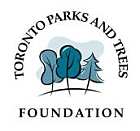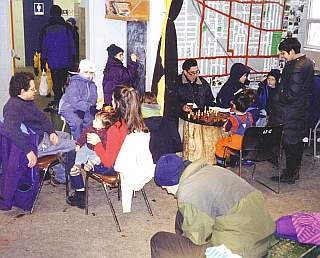
Pages in this Folder:

Related Folders:
See also Department Site Map
This website was developed in 2001 thanks to a grant from the Toronto Parks and Trees Foundation.

Notice: This web site is an information post and a forum for the community that uses the park, and to some degree for the surrounding neighbourhood. The editor of the web site reserves the right to post parts or all of any letters sent to the web site. If you do not want your letter posted, please let us know when you e-mail us, and we won't post it.
Comments?
For the basics, see
- Website & Privacy Policies
- How To Get Involved
- The Role of the Park
Search options:
Department Site Map
Custodians:
posted March 3, 2005
Breastfeeding and the Human Rights Laws: News From Our Legal Committee
On January 7, Jutta Mason made a comment to a breastfeeding woman at the rink house which led that person to make a now-well-known human rights complaint to the City. Jutta protested that it was the degree of undress she had spoken about, not the human right to breastfeed at the rink house (or anywhere else). Parks and Recreation Director Don Boyle wrote to us that any degree of undress while breastfeeding in the rink house is protected by law: "A woman has the right to be topless in public. We must recognize / respect these rights and move forward." City Councillor Adam Giambrone arranged for a formal apology from the City.
So a few of the park friends struck a legal committee to study the Ontario Human Rights Code [ed. see literature review] and the related Canadian legal cases [ed. see case law]. It was pretty evident that the "right to be topless" was not the issue at our rink. The Gwen Jacob case in 1996 had decided that anywhere a man could be shirtless, so could a woman. Neither of them would be subject to arrest for indecent exposure. But that doesn't abolish dress codes inside buildings - they just have to be equally applied. "No shirt, no shoes, no service" is not an illegal rule - if it covers both genders.
Since our park's rink is an unusual rink house/ community room combination, we don't let men go around shirtless any more than women. If shinny hockey players (male or female) want to change their clothes during public skating times, we ask them to move to the chairs in the sink area of the washrooms.

The Rink Clubhouse
But the human right to breastfeed comes under a different law - the right not to be discriminated against on the grounds of sex or family status. Neither a mother nor a baby can be discriminated against on the grounds of the baby's need to drink its mother's milk. Excellent! One of the many beauties of breastfeeding is that as long as the baby is with the mother, she can put the baby to the breast as soon as hunger strikes, and everyone is content. So wherever babies can be present (not usually in a concert hall or sitting in the middle of a road, but almost anywhere else), no one can tell the mother to stop feeding her baby.
Beyond that, the only direct reference in existing cases is a Manitoba Human Rights Tribunal decision from December 2000, in which the basic right of the mother to nourish her baby was annexed to a concern about "the duty to accommodate reasonableness and something of a give-and-take on the part of all those who are affected by a given situation."
So here's our legal study-group's idea. Let's try some good sense. Our park is already "breastfeeding central," and that's intentional. At the same time, we could take up the Manitoba human rights adjudicator's invitation to 'reasonableness.' Reasonably, a mother doesn't need to take off her shirt to breastfeed her baby even if the city policy says she can. Nor does she need to stand up in the middle of our crowded rink house and lift up her whole shirt before getting started. In the very rare case that a breastfeeding mother's personal style demands those things, someone can invite her to go and sit on the wicker chair in the sink area of the washroom. If she refuses, that may be her right. Others sitting nearby can tell her - gently, politely, earnestly - how they feel about her display, if they wish. Or they can pull the curtain that we use for privacy when a hockey permit group needs to change. There's no law against speaking with good will and there's no law against pulling a curtain.
It's very important to remember that the Ontario Human Rights Code - as it suggests in its preamble - is intended to unite communities, not divide them. That means, among other things, that we're allowed to talk, write, argue, disagree, agree, about the everyday details of human rights. Freedom of speech is a basic human right in Canada. In the presence of good will, it can work wonders. And open-hearted discussion works better than the threat of taking each other to court for what we say - any day.
See also:
- A discussion of Parks & Rec management statements regarding breastfeeding and related issues
- A discussion of related issues based on statements from the La Leche League of Canada executive
- People's idea of the law, part one: emails from the "virtual village"
- People's idea of the law, part two: from people who actually use the park


 Printer friendly version
Printer friendly version